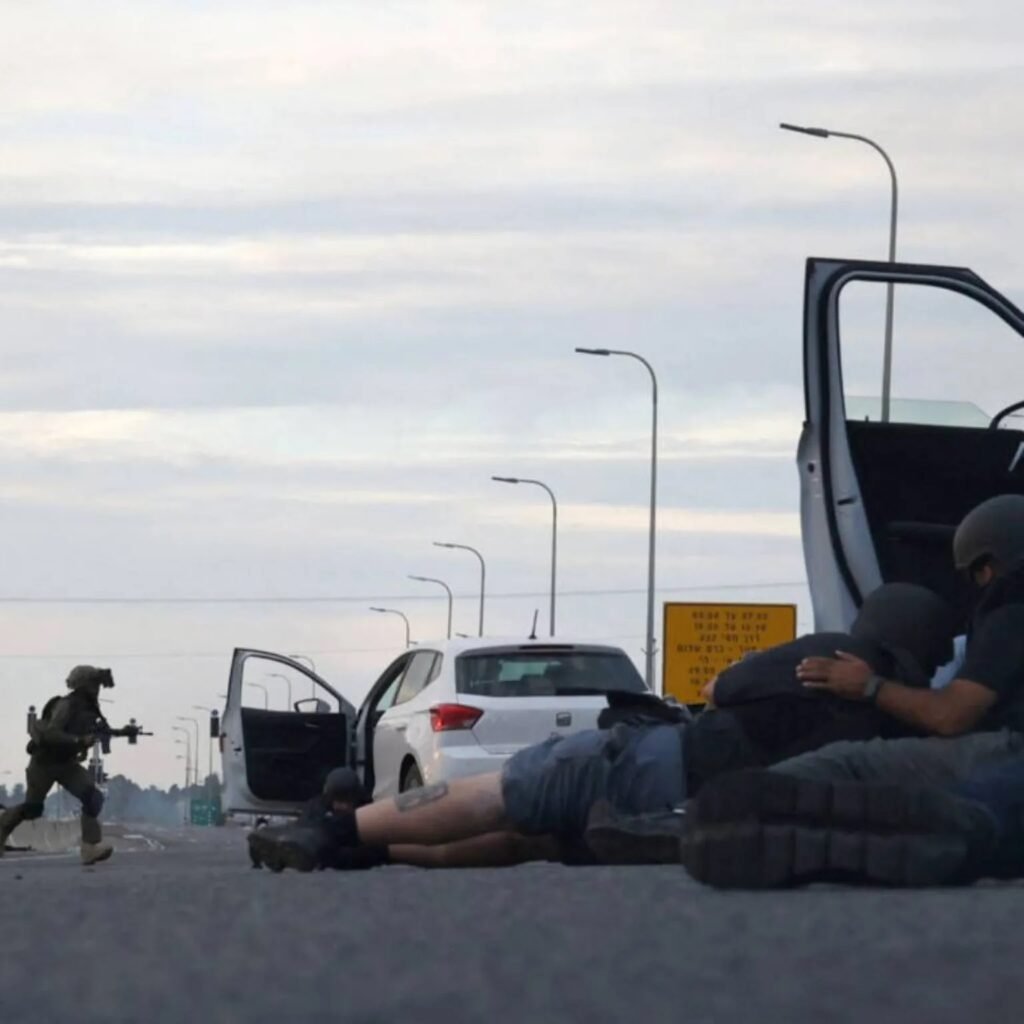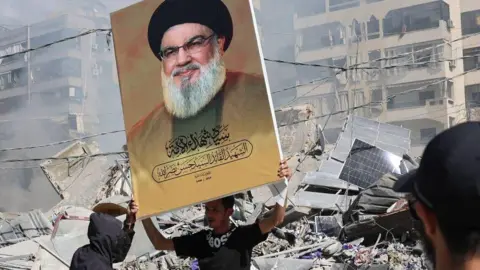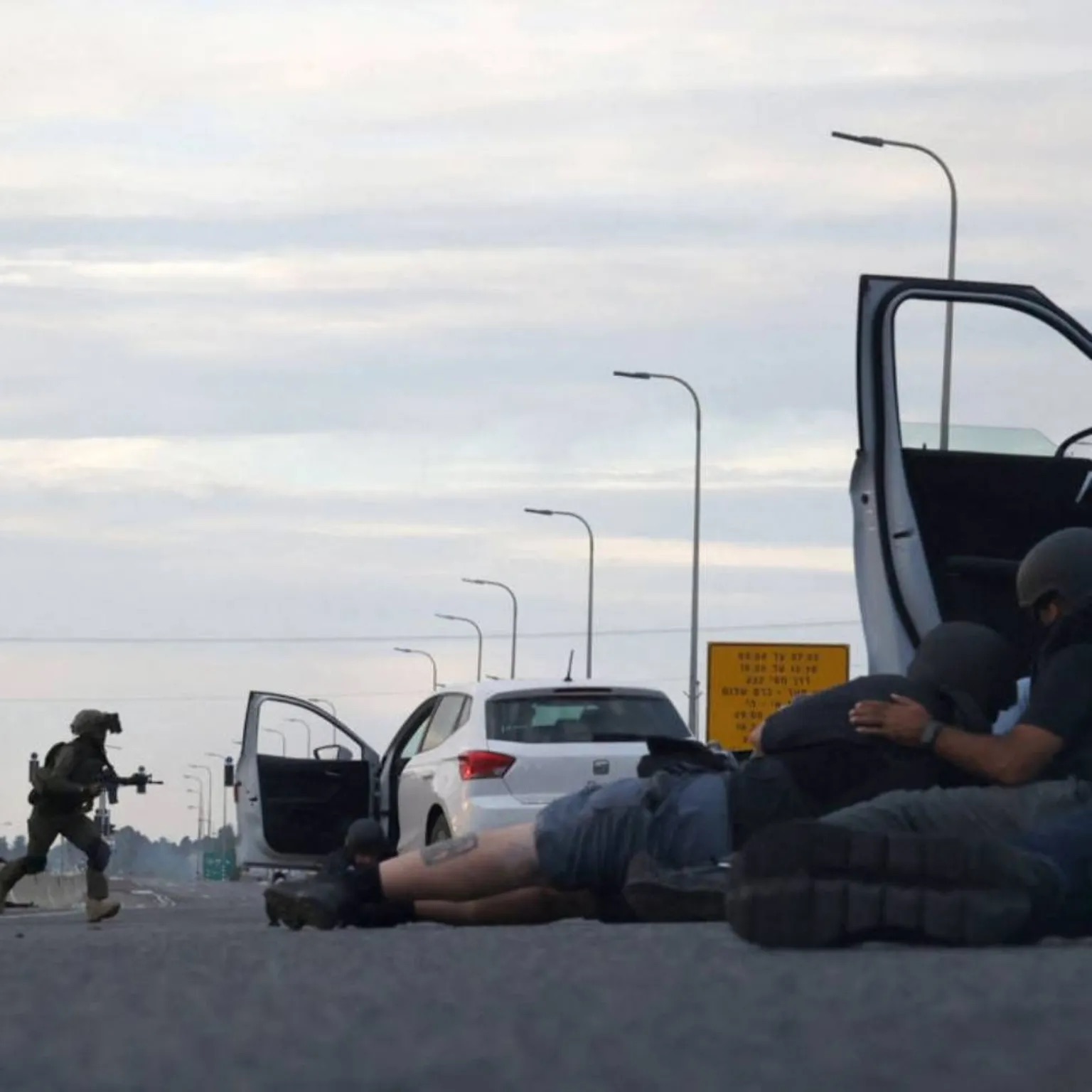
Millions of people in the Middle East dream of safe, quiet lives without drama and violent death. The last year of war, as bad as any in the region in modern times, has shown yet again that dreams of peace cannot come true while deep political, strategic and religious fault lines remain unbridged. Once again, war is reshaping the politics of the Middle East.
The Hamas offensive came out of well over a century of unresolved conflict. After Hamas burst through the thinly defended border, it inflicted the worst day the Israelis had suffered.
Around 1,200 people, mostly Israeli civilians, were killed. Israel’s prime minister, Benjamin Netanyahu, phoned President Joe Biden and told him that “We’ve never seen such savagery in the history of the state”; not “since the Holocaust.” Israel saw the attacks by Hamas as a threat to its existence.
Since then, Israel has inflicted many terrible days on the Palestinians in Gaza. Nearly 42,000 people, mostly civilians have been killed, according to the Hamas-run health ministry. Much of Gaza is in ruins. Palestinians accuse Israel of genocide.
The war has spread. Twelve months after Hamas went on the offensive the Middle East is on the edge of an even worse war; wider, deeper, even more destructive.
The death of illusions
A year of killing has stripped away layers of assumptions and illusions. One is Benjamin Netanyahu’s belief that he could manage the Palestinian issue without making concessions to their demands for self-determination.
With that went the wishful thinking that had comforted Israel’s worried Western allies. Leaders in the US and UK, and others, had convinced themselves that Netanyahu, despite opposing a Palestinian state alongside Israel all his political life, could somehow be persuaded to accept one to end the war.
Netanyahu’s refusal reflected almost universal distrust of Palestinians inside Israel as well as his own ideology. It also torpedoed an ambitious American peace plan.
President Biden’s “grand bargain” proposed that Israel would receive full diplomatic recognition by Saudi Arabia, the most influential Islamic country, in return for allowing Palestinian independence. The Saudis would be rewarded with a security pact with the US.
The Biden plan fell at the first hurdle. Netanyahu said in February that statehood would be “huge reward” for Hamas. Bezalel Smotrich, one of the ultra-nationalist extremists in his cabinet, said it would be an “existential threat” to Israel.
The Hamas leader, Yahya Sinwar, presumed to be alive, somewhere in Gaza had his own illusions. A year ago, he must have hoped that the rest of Iran’s so-called “axis of resistance” would join, with full force, into a war to cripple Israel. He was wrong.
Sinwar kept his plans to attack Israel on 7 October so secret that he took his enemy by surprise. He also surprised some on his own side. Diplomatic sources told the BBC that Sinwar might not even have shared his plans with his own organisation’s exiled political leadership in Qatar. They had notoriously lax security protocols, talking on open lines that could be easily overheard, one source said.
Far from going on the offensive, Iran made it clear it did not want a wider war, as Israel invaded Gaza and President Biden ordered American carrier strike groups to move closer to protect Israel.
Instead, Hassan Nasrallah, and his friend and ally, Iran’s supreme leader Ayatollah Ali Khamenei, restricted themselves to rocketing Israel’s northern border, which they said would continue until a ceasefire in Gaza. The targets were mostly military, but Israel evacuated more than 60,000 people away from the border. In Lebanon, perhaps twice as many had to flee over the months as Israel hit back.


















